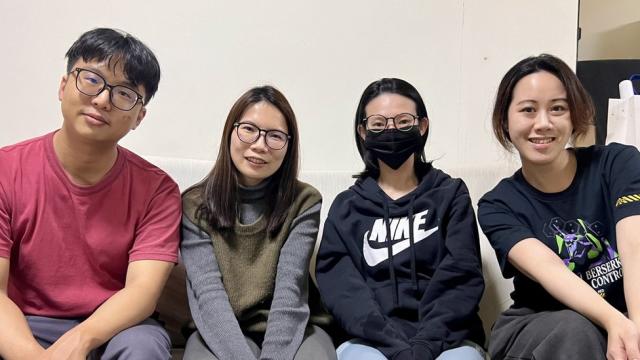Ziwei can still remember the month.s she spent huddling alone in a tiny shoebox apartment in Taipei.
There was no window in the 10-sq-m studio, just a small vent near the ceiling. It perpetually stank of sewage, even after she stuffed her shower drain with plastic bags. And the walls were painted in just the oddest shade of orange.
“With no windows, I felt so sad,” the 32-year-old recalled. “I would stay out really late every night, and I would come home only to sleep.”
But it was all she could afford in 2019 after breaking up with her boyfriend and moving out. Though she was a civil servant – considered to be a good job – her monthly pay was NT$40,000 ($1,285; £1,011) at the time, well below the national average.
Low wages and housing will be on the minds of Ziwei and six million Taiwanese voters under the age of 40 on Saturday, when they choose their president and parliament.
As it does at every election, the question of China’s claims on Taiwan and how the island should respond to Beijing’s threats looms large. But this time voters are more concerned about the economy.
A recent survey of 15,000 Taiwanese by Commonwealth Magazine saw most stating that economic development should be their next president’s top priority, over national security and cross-strait relations. It was especially crucial for respondents aged between 20 and 39.
After eight years in power, the Democratic Progressive Party (DPP) is coming under fire for failing to adequately improve people’s lives, especially younger Taiwanese.
Rising house prices and rentals, stagnating incomes, a significant youth unemployment rate, and an annual GDP growth hovering around 2% have worried many. More than a third of low-wage workers are aged below 30, according to an analysis provided to the BBC by labour expert Lee Chien-hung from the Chinese Culture University.
It’s given rise to social phenomenon such as the “beipiao”, youths from poorer parts of Taiwan seeking better jobs in the capital while grappling with rising rents. There’s also the “xiegang”, young workers juggling multiple jobs to earn a decent wage, and the “yueguangzu”, those who live paycheck to paycheck with no savings.
Kaili, a friend of Ziwei’s, is a “beipiao” from the southern city of Chiayi resigned to a lifetime of renting in Taipei.
When it comes to buying her own home “I’ve given up hope”, said the 37-year-old, who works in documentary films.
“I can’t see the reason why I should buy. My salary is quite low. I don’t think I can afford to put down a deposit on a home, not now, not even in ten years’ time.”







